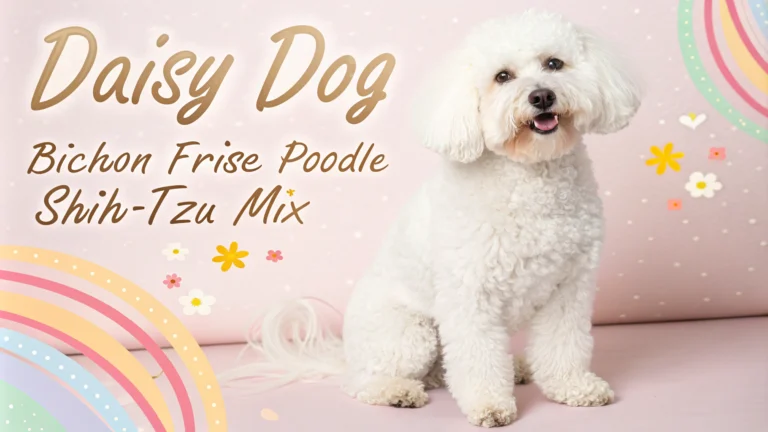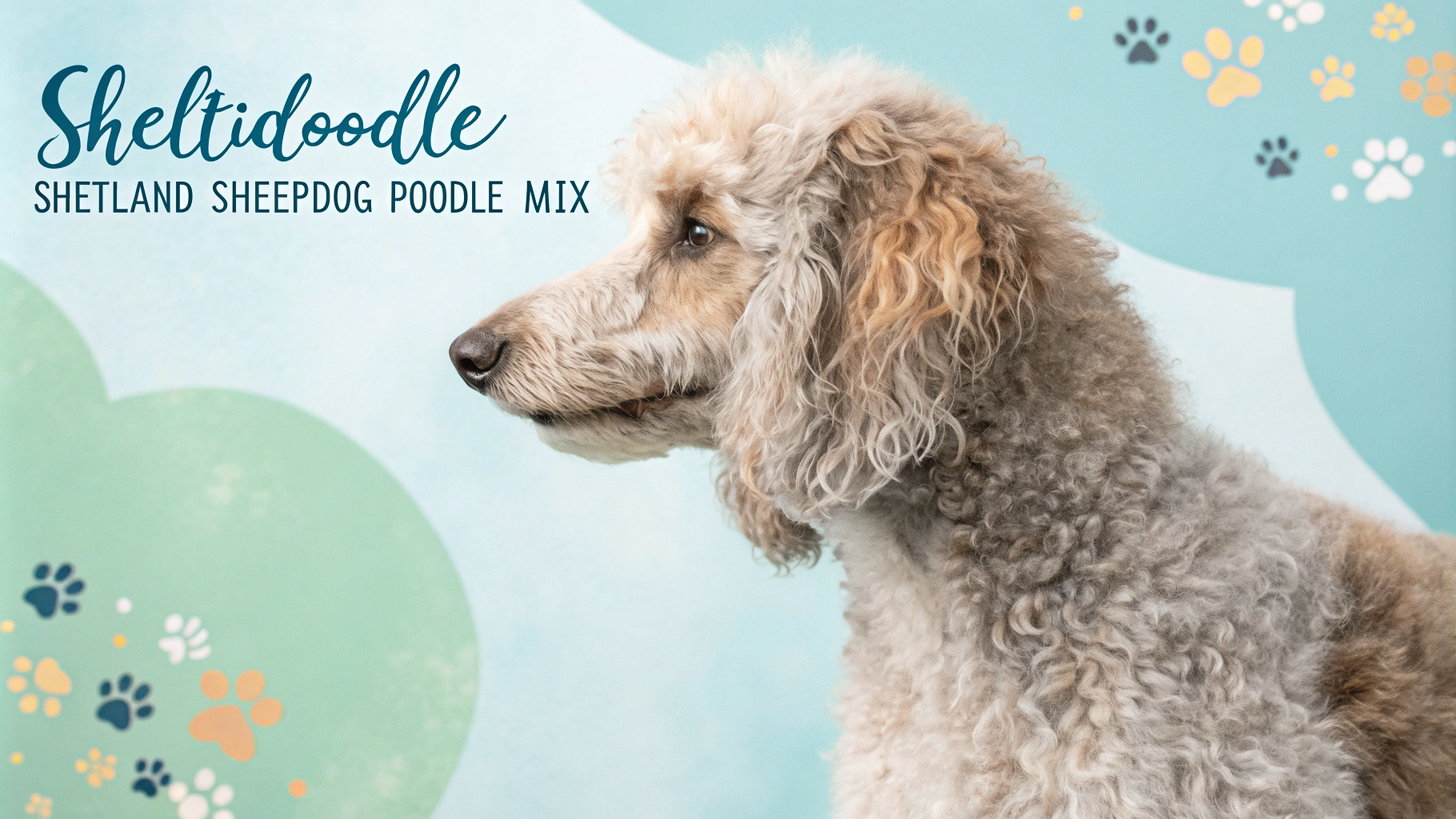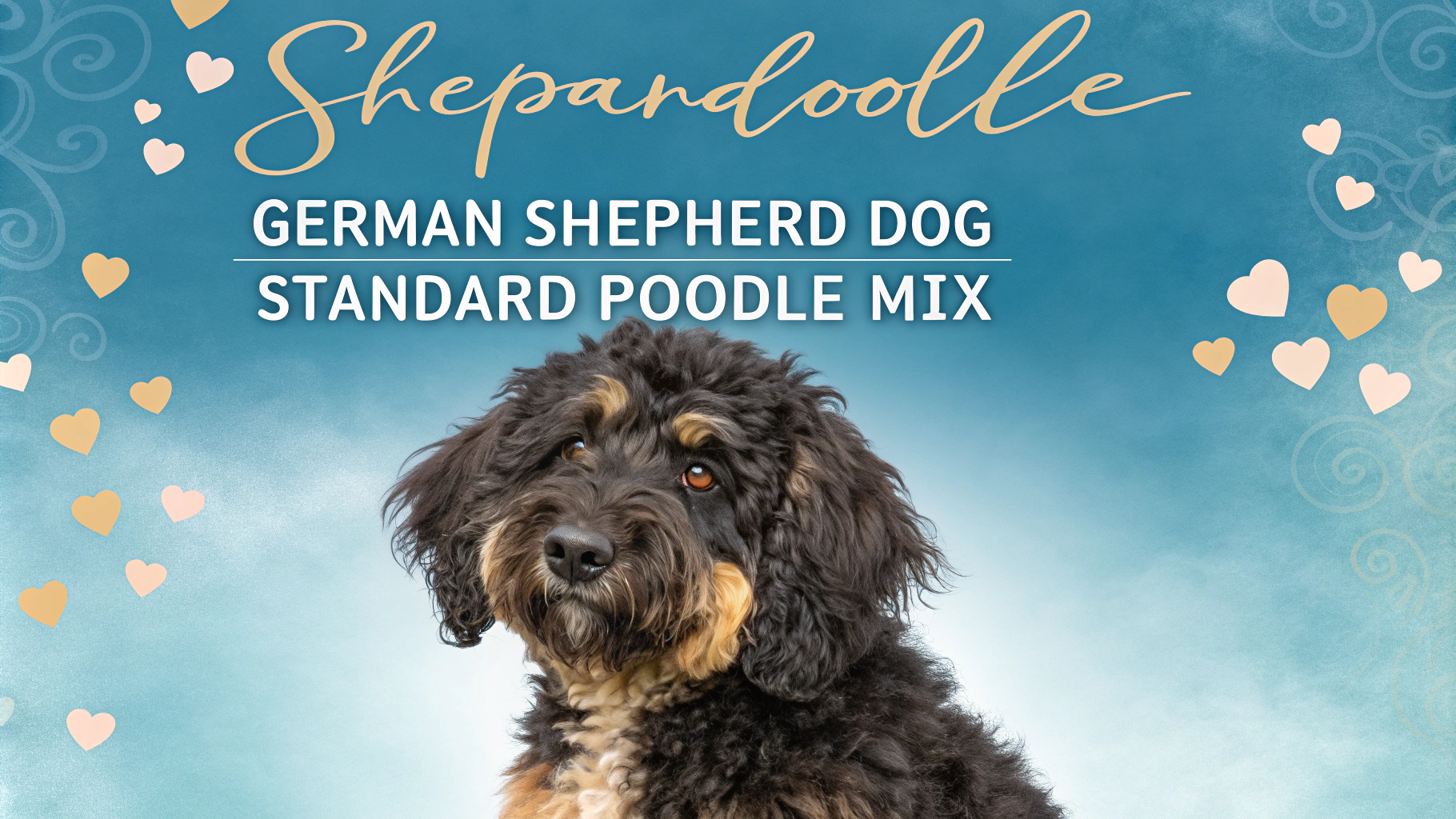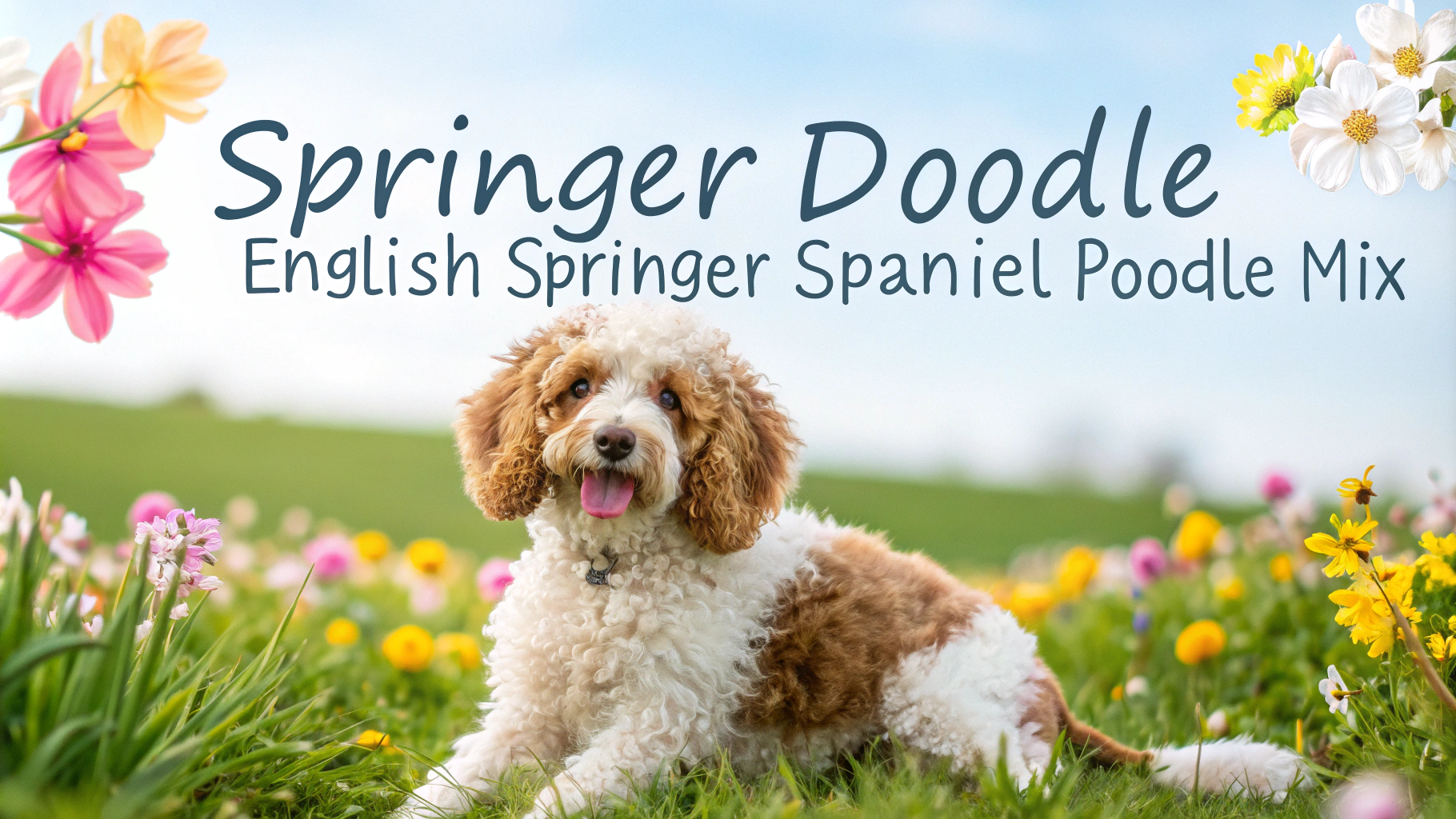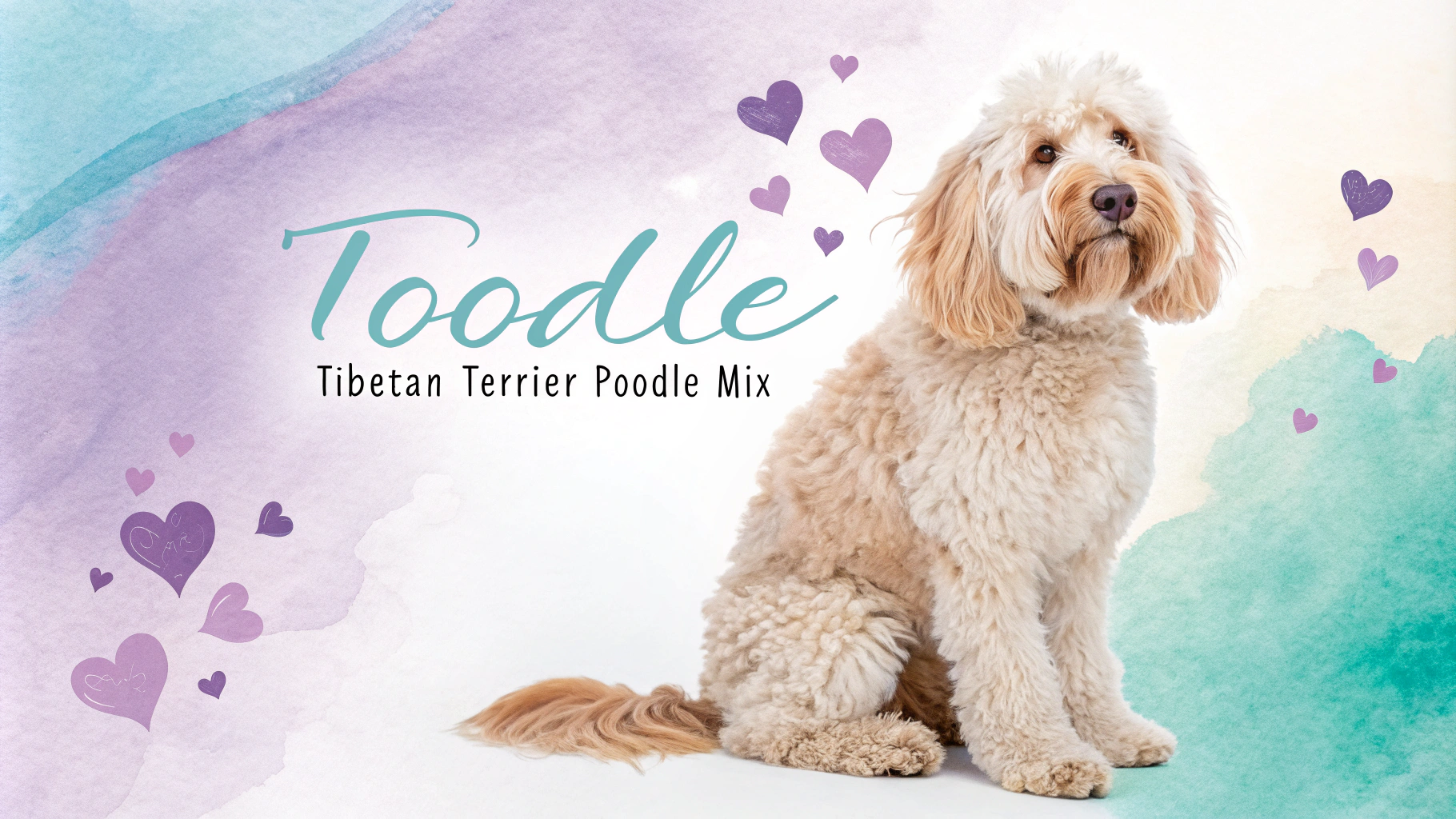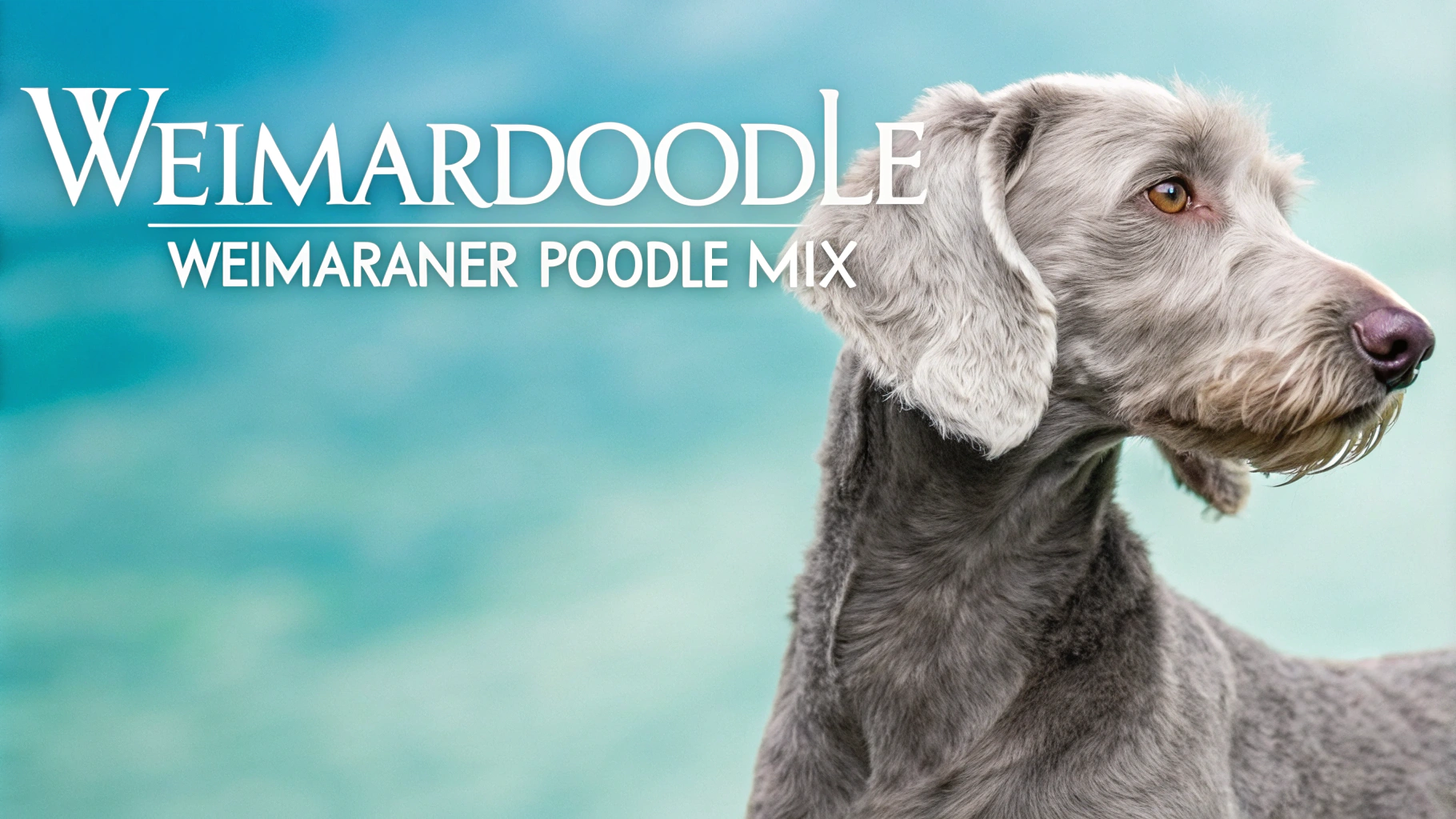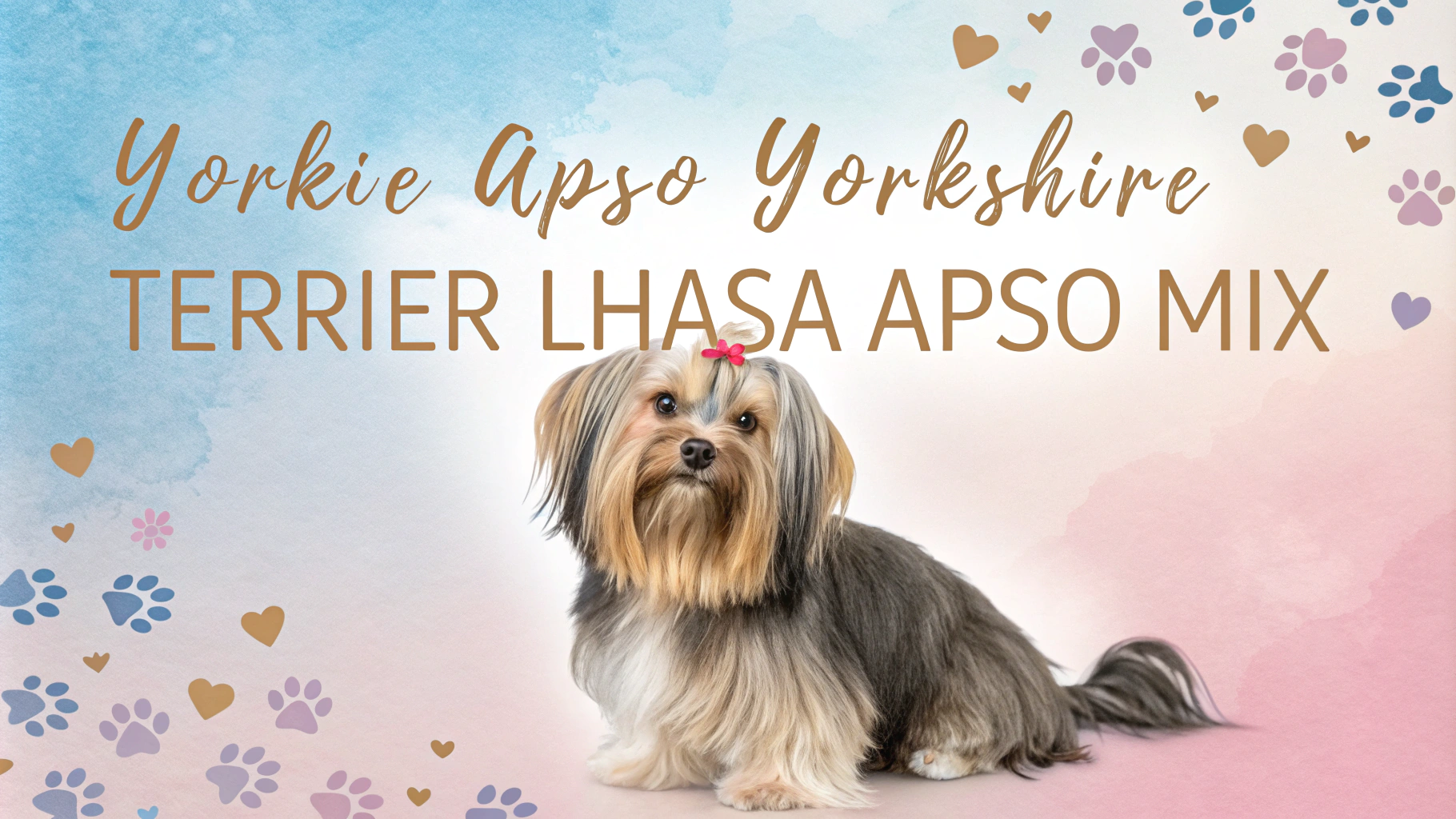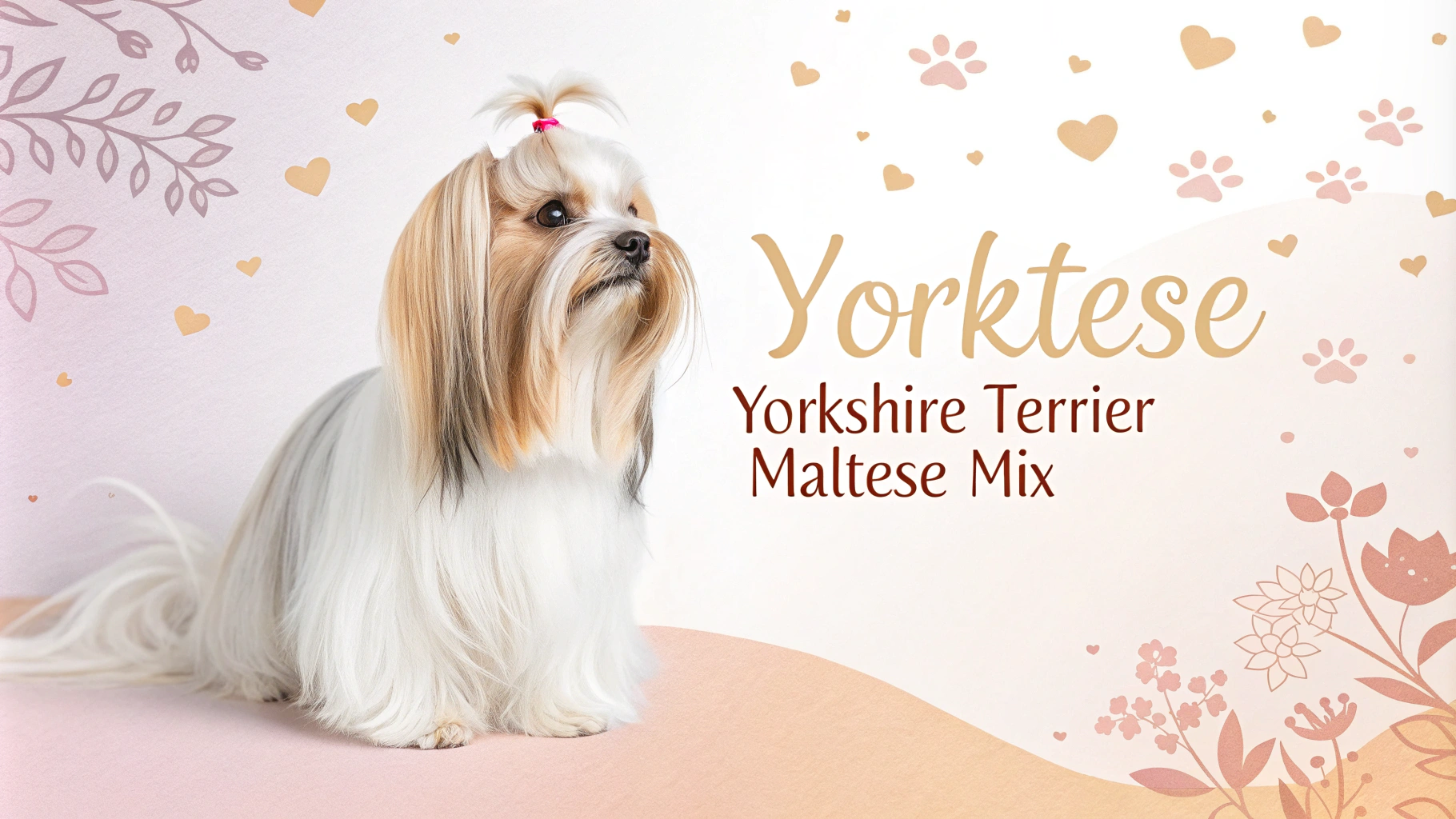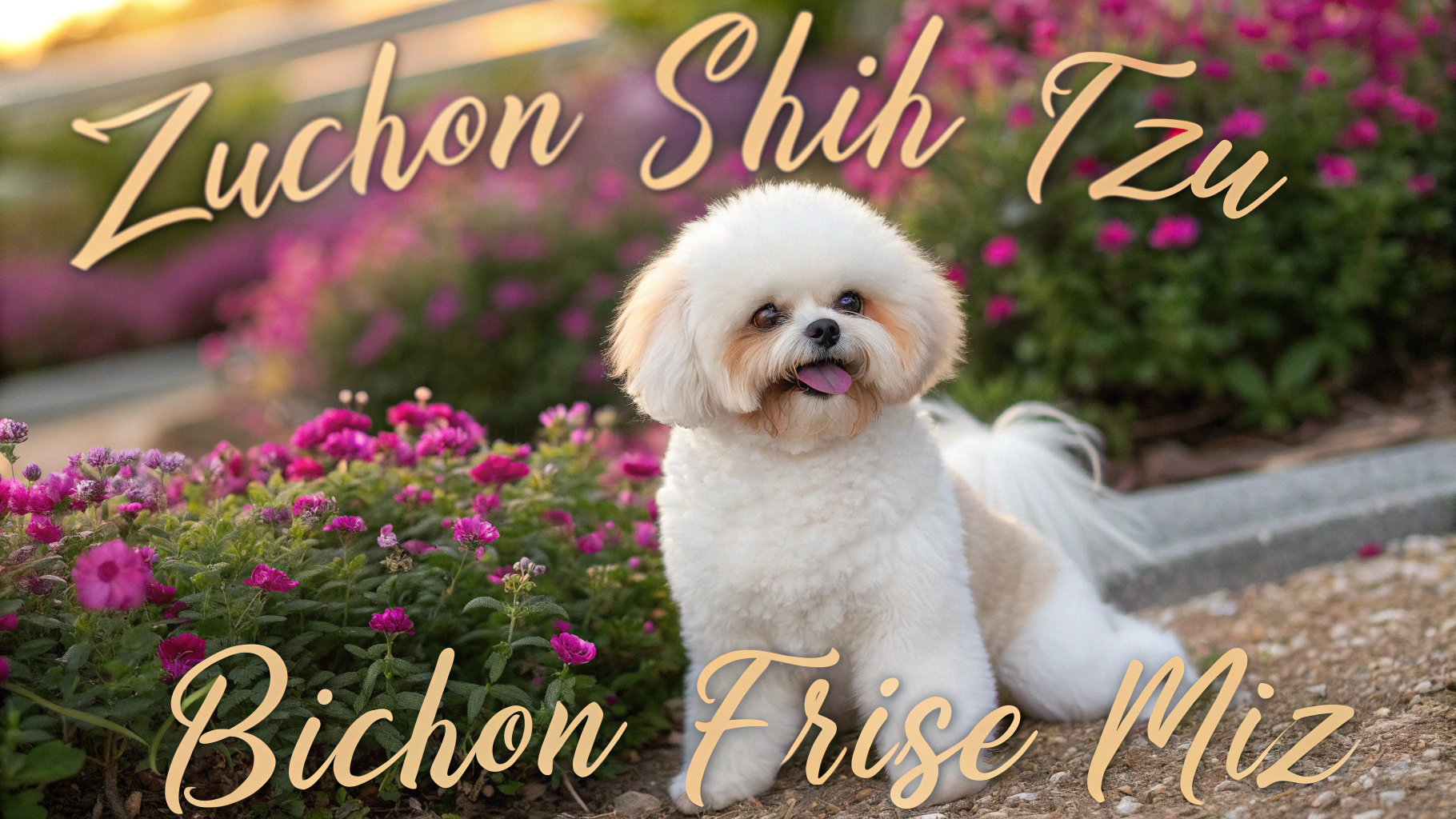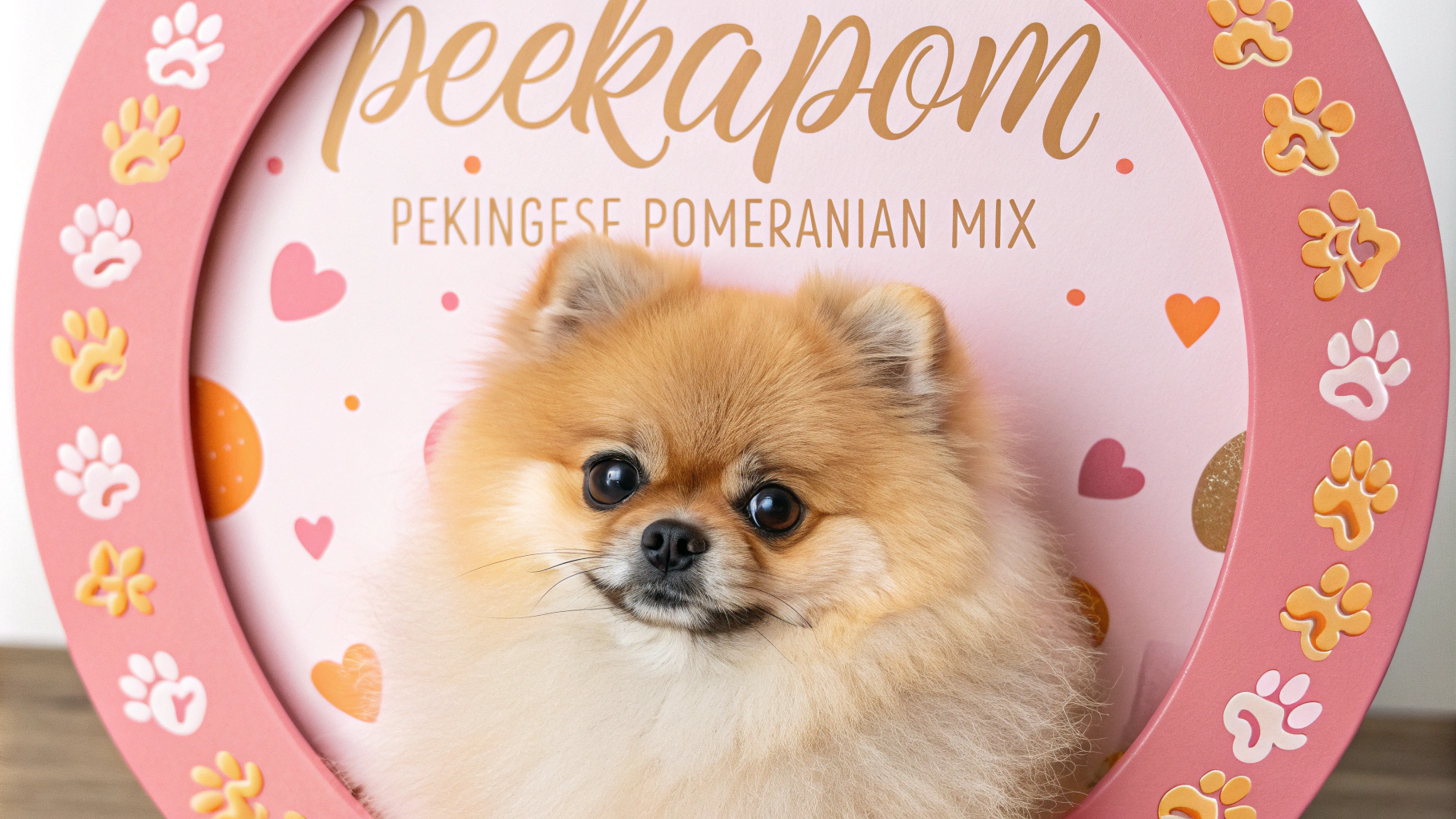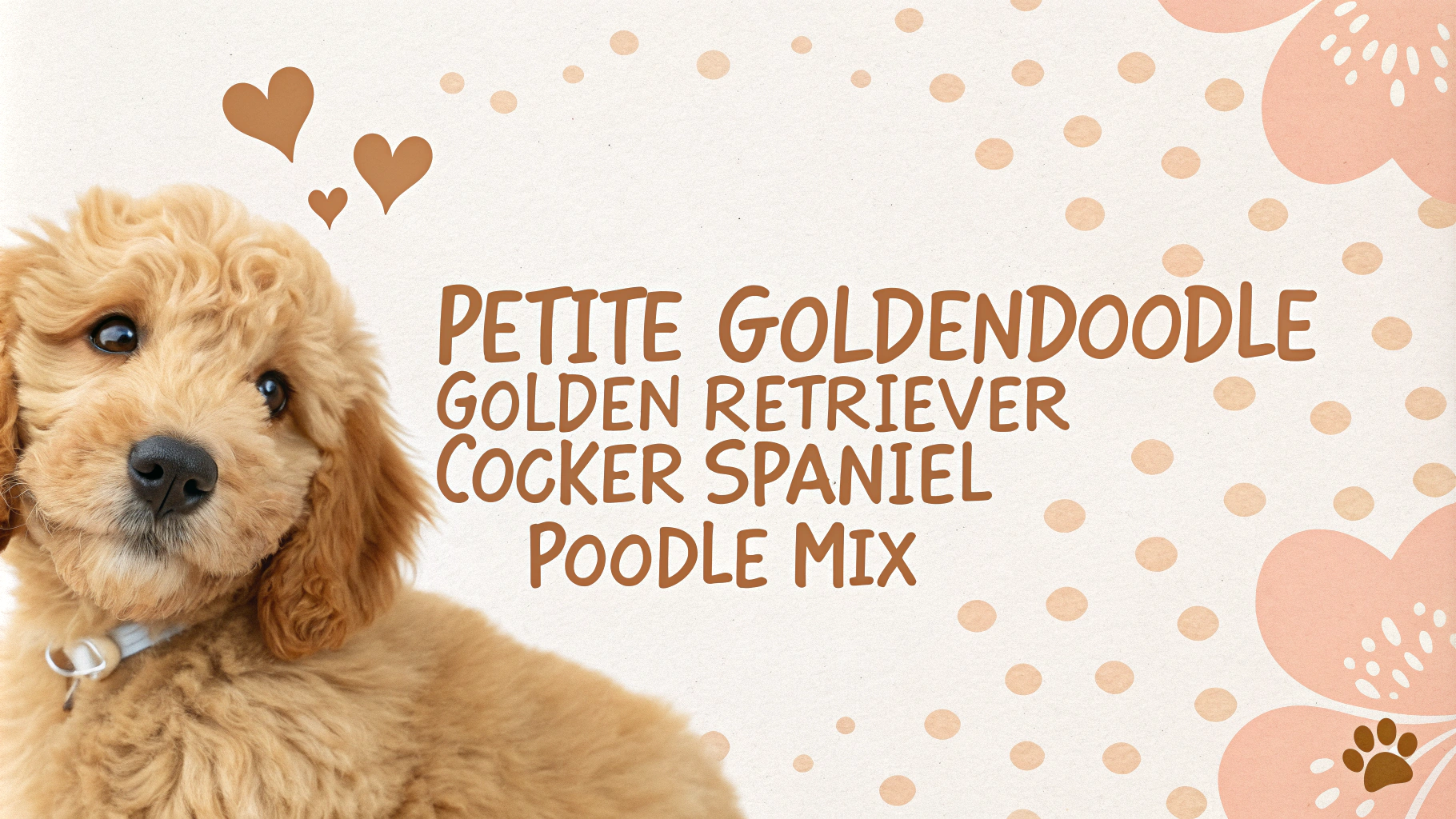The Daisy Dog is a charming designer breed that combines the traits of three popular small dog breeds: the Bichon Frise, Poodle, and Shih-Tzu. This delightful mix results in a friendly, intelligent, and adaptable companion dog that is well-suited for various living situations. Daisy Dogs are known for their affectionate nature, hypoallergenic coat, and playful personality, making them excellent pets for families, singles, and seniors alike.
Key Facts
- Size: Small (8-12 inches tall, 6-20 pounds)
- Lifespan: 12-15 years
- Coat: Soft, curly or wavy, hypoallergenic
- Colors: White, cream, apricot, black, or multi-colored
- Temperament: Affectionate, intelligent, playful
- Exercise needs: Moderate
- Grooming: High maintenance
Character Traits
Daisy Dogs inherit a blend of personality traits from their parent breeds, resulting in a charming and well-rounded companion. These dogs are typically friendly, affectionate, and social, enjoying the company of their human family members and getting along well with children and other pets. Their intelligence, inherited from the Poodle lineage, makes them quick learners and eager to please. Daisy Dogs are often described as playful and energetic, with a good balance of activity and relaxation. They can be adaptable to various living situations, making them suitable for both apartment dwellers and those with larger homes. While generally good-natured, they may inherit the Shih-Tzu’s stubborn streak, requiring patient and consistent training. Daisy Dogs are known to be alert and make good watchdogs, often barking to announce visitors or unfamiliar sounds.
History & Origins
The Daisy Dog is a relatively new designer breed, likely originating in the late 20th or early 21st century as part of the growing trend of creating mixed breeds with desirable traits. While the exact origins of the Daisy Dog are not well-documented, it is believed to have been developed by crossing a Bichon Frise with a Poodle and then introducing Shih-Tzu genetics. The goal was likely to create a small, intelligent, and hypoallergenic companion dog with an appealing appearance and temperament. The breed’s name, “Daisy Dog,” is thought to have been chosen to reflect its sweet and charming nature. As with many designer breeds, the Daisy Dog is not recognized by major kennel clubs but has gained popularity among dog enthusiasts seeking a unique and lovable pet.
Health Concerns
Daisy Dogs, like many mixed breeds, can inherit health issues from their parent breeds. Common concerns include:
- Eye problems: Cataracts, progressive retinal atrophy, and tear duct issues
- Patellar luxation: A condition where the kneecap dislocates
- Dental issues: Due to their small size and potential for overcrowded teeth
- Allergies: Skin allergies and food sensitivities
- Hip dysplasia: Though less common in small breeds, it can still occur
Regular veterinary check-ups, dental care, and keeping up with vaccinations are essential for maintaining their health. It’s also important to monitor for any signs of respiratory issues, as brachycephalic breeds like Shih-Tzus can pass on breathing difficulties. While generally healthy, Daisy Dogs may have a lifespan of 12-15 years with proper care and attention to these potential health concerns.
Exercise Needs
Daisy Dogs have moderate exercise requirements, benefiting from daily physical activity to maintain their health and happiness. Their exercise needs typically include:
- Daily walks: 30-45 minutes of walking, split into two sessions if possible
- Playtime: Interactive games like fetch or tug-of-war for mental stimulation
- Indoor activities: Puzzle toys and training sessions for mental exercise
- Socialization: Dog park visits or playdates with other small dogs
While energetic, Daisy Dogs are adaptable and can adjust to their owner’s lifestyle. They enjoy being active but don’t require intense exercise. Regular play sessions and short walks are usually sufficient to keep them healthy and prevent behavioral issues. It’s important to note that their exercise needs may vary based on age, health, and individual temperament.
Space Requirements
Daisy Dogs are well-suited for various living situations due to their small size and adaptable nature. Their space requirements include:
- Indoor living: Comfortable in apartments or houses
- Outdoor access: A small yard or balcony is beneficial but not necessary
- Sleeping area: A cozy bed or crate in a quiet corner
- Play area: Enough room for indoor games and toys
These dogs don’t need a large amount of space, making them ideal for urban living. However, they do appreciate having a designated area for relaxation and play. While they can adapt to apartment living, access to outdoor areas for walks and exploration is important for their physical and mental well-being. Daisy Dogs are social animals and prefer to be close to their owners, so they should have access to family living areas.
Nutrition & Feeding
Proper nutrition is crucial for the health and longevity of Daisy Dogs. Their dietary needs include:
- High-quality dog food: Choose a brand formulated for small breeds
- Portion control: Measure food to prevent obesity, typically 1/2 to 1 cup daily, divided into two meals
- Age-appropriate diet: Puppy, adult, and senior formulas as needed
- Fresh water: Always available and changed regularly
- Limited treats: No more than 10% of daily caloric intake
Daisy Dogs may have specific dietary needs based on their size, age, and activity level. Some may be prone to food allergies, so monitoring for any adverse reactions to new foods is important. Consult with a veterinarian to determine the best diet plan, especially if the dog has any health issues or special nutritional requirements. Avoid feeding human food, as some can be harmful to dogs, and stick to a consistent feeding schedule to maintain digestive health.
Grooming Tips
The Daisy Dog, being a mix of Bichon Frise, Poodle, and Shih-Tzu, typically has a coat that requires regular grooming. Their fur is often soft, wavy, and prone to matting if not properly maintained. Here are some essential grooming tips:
- Brushing: Daily brushing is recommended to prevent tangles and matting. Use a slicker brush or pin brush to gently work through the coat.
- Bathing: Bathe your Daisy Dog every 3-4 weeks or as needed. Use a mild dog shampoo to avoid skin irritation.
- Haircuts: Professional grooming every 6-8 weeks helps maintain a manageable coat length and style.
- Ear care: Check and clean ears weekly to prevent infections, especially if the ears are floppy.
- Dental hygiene: Brush teeth 2-3 times a week to maintain good oral health and prevent dental issues.
- Nail trimming: Trim nails every 2-3 weeks or as needed to prevent overgrowth and discomfort.
Regular grooming not only keeps your Daisy Dog looking neat but also provides an opportunity to check for any skin issues, lumps, or abnormalities. Establishing a grooming routine early in life can help your dog become accustomed to the process and make it a positive bonding experience.
Training Approach
Daisy Dogs are generally intelligent and eager to please, traits inherited from their parent breeds. This combination often results in a dog that is relatively easy to train, but may also have a stubborn streak. Here’s an effective training approach for Daisy Dogs:
- Positive reinforcement: Use treats, praise, and toys to reward good behavior. This method is particularly effective with these sensitive dogs.
- Consistency: Establish clear rules and stick to them. All family members should use the same commands and reward system.
- Early socialization: Expose your Daisy Dog to various people, animals, and environments from a young age to prevent shyness or anxiety.
- Short training sessions: Keep training sessions brief (5-10 minutes) but frequent to maintain engagement and prevent boredom.
- Mental stimulation: Incorporate puzzle toys and training games to challenge their intelligent minds.
- Patience: Some Daisy Dogs may inherit a stubborn streak from the Shih-Tzu side. Remain patient and persistent in your training efforts.
Remember that every dog is unique, and you may need to adjust your training approach based on your individual Daisy Dog’s personality and learning style. Enrolling in puppy classes or working with a professional dog trainer can be beneficial, especially for first-time dog owners.
